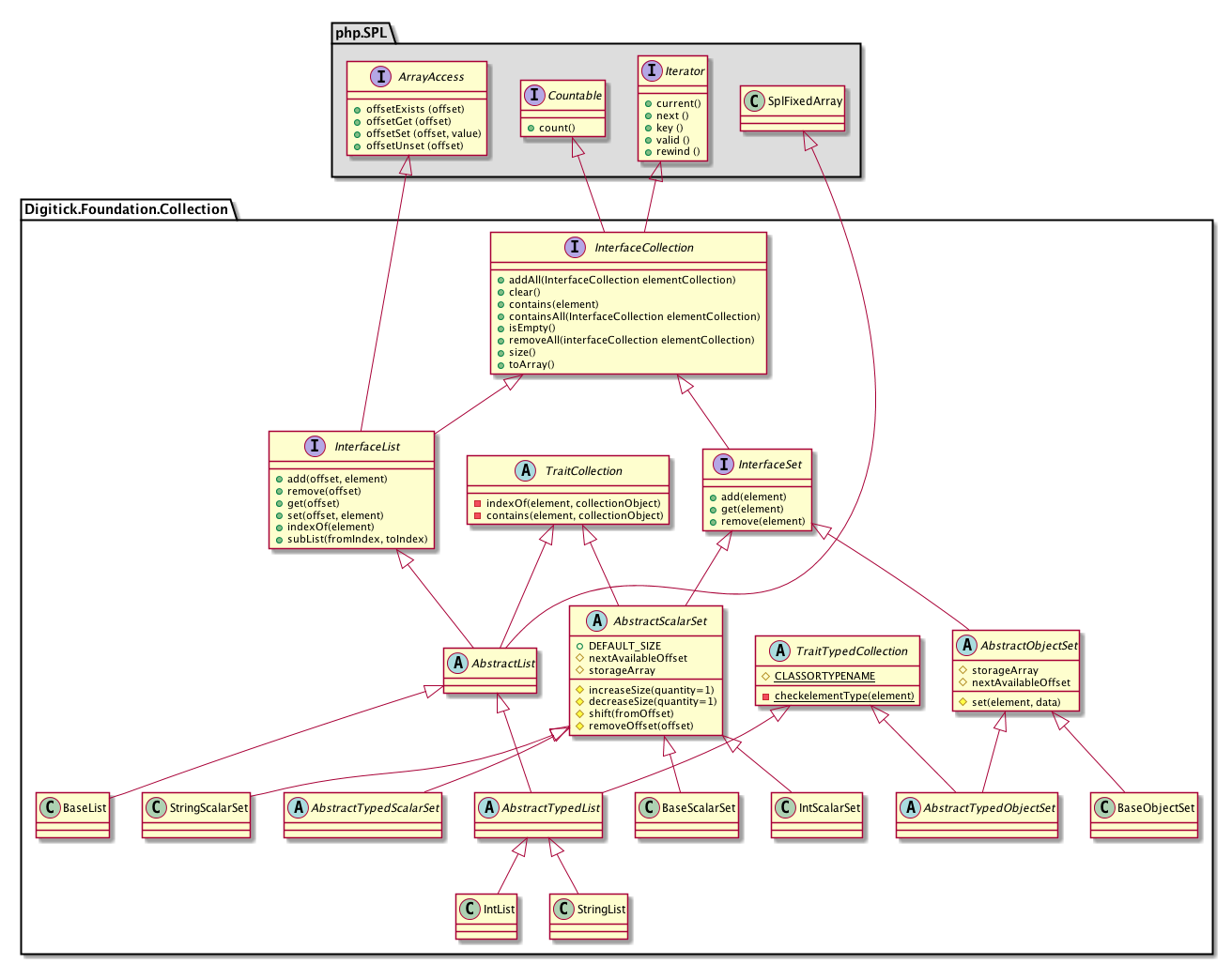Collection management classes
A list collection store a set of items in an ordered way.
A list that accept any type of items.
$size = 4;
$list = new BaseList($size);
$list->set (0, "First item"); // Setter style
$list[1] = 123; // Array style
foreach ($list as $item) {
echo $item;
}You can define a list which will only contains items of the class you want. The collection ensure type checking.
<?php
require __DIR__ . "/vendor/autoload.php";
// The class you want to be in your list collection
class MyItem {
public $value;
/**
* MyItem constructor.
* @param $value
*/
public function __construct($value)
{
$this->value = $value;
}
/**
* @return mixed
*/
public function getValue()
{
return $this->value;
}
/**
* @param mixed $value
* @return MyItem
*/
public function setValue($value)
{
$this->value = $value;
return $this;
}
}
// Declare your list collection for class MyItem
class MyItemList extends \Digitick\Foundation\Collection\AbstractTypedList
{
/**
* @var string
*/
protected static $CLASSORTYPENAME = "MyItem"; // Ensure that the list will only contains items of class MyItem
}
// You must give the size of your list
$myList = new MyItemList (3);
// You can access to your list like standard PHP array
$myList [0] = new MyItem(1);
$myList [1] = new MyItem(2);
$myList [2] = new MyItem(3);
// Except for this syntax : new values can not be pushed at the end of the list;
//$myList [] = new MyItem(3); // Throw exception
// You can iterate over your list with foreach syntax
/** @var MyItem $item */
foreach ($myList as $item) {
echo "Item : " . $item->getValue() . "\n";
}Predefined typed list for integers.
$list = new IntList($size);
$list->set (0, 123); // Setter style
$list[1] = 123; // Array style
$list[2] = "foo"; // throw exceptionPredefined typed list for strings.
$names = new \Digitick\Foundation\Collection\StringList(2);
$names [0] = "Emilio Bradshaw";
$names [1] = "Dyler Runner";Unlike list collection, with a set collection elements are not ordered.
$lottery = new \Digitick\Foundation\Collection\IntScalarSet(10);
for ($i = 0; $i < 10; $i++) {
$randomNumber = rand (1, 10);
echo "Add $randomNumber\n";
$lottery->add($randomNumber);
}
if ($lottery->contains(5)) {
echo "Number 5 exists : WIN !";
} else {
echo "Number 5 is elsewhere: LOOSE !";
}Like list collection a set can be constrains to a specific type / class.
class CustomType {
}
class CustomTypeSet extends \Digitick\Foundation\Collection\AbstractTypedObjectSet
{
/**
* @var string
*/
protected static $CLASSORTYPENAME = 'CustomType';
}
$customSet = new CustomTypeSet();
$customSet->add (new CustomType());